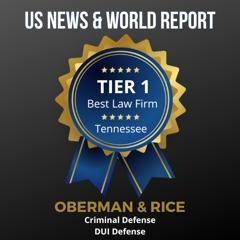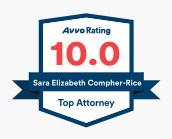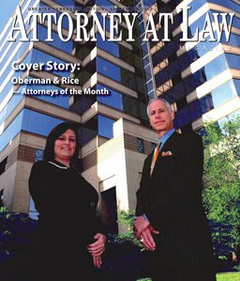THE TENNESSEE CRIMINAL JUSTICE SYSTEM
The following information summarizes the typical steps which occur in the Tennessee Criminal Justice System from the time the defendant is arrested through trial in criminal court. These procedures vary from county to county and some of these steps are combined in various ways depending on the particular jurisdiction.
Your Rights In Any Criminal Case
Regardless of which county the case is in, any defendant has certain rights. You have the right to have a lawyer represent you. If you cannot afford a lawyer, the court will appoint one to represent you. You have the right, in most cases, to have a preliminary hearing to determine the issue of probable cause as further described in step 3 below. You have the right to have a grand jury consider your case as described in step 4, and ultimately you have the right to a jury trial as described in step 6. You further have the right to remain silent, to be presumed not guilty, to plead not guilty and to persist in that plea.
You have the right to require the State to prove your guilt beyond all reasonable doubt. You also have the right to confront each and every witness against you in court. This means your lawyer has the right to cross-examine each witness. You have the right to subpoena witnesses to come to court and testify on your behalf. Should you be convicted, you have the right to appeal the conviction to the Tennessee Court of Criminal Appeals, and if you are unable to afford an attorney, you also have the right to have an appointed lawyer represent you at that stage of the proceedings.
The steps from arrest to trial are:




To be lawful, a police officer must have probable cause to believe that a crime is being, or has been, committed. If the arrest is for a misdemeanor offense, the crime must normally have been committed in the officer’s presence.
STEP 2 — ARRAIGNMENT.
In some Tennessee counties, an Arraignment occurs before the first hearing date. This procedure is also called an Initial Appearance. The proceeding is performed to ensure that a bond has been set, that the defendant is aware of the charges, has obtained a lawyer, and to schedule another court date. A formal plea of “guilty” or “not guilty” is typically not requested at this stage. The amount of bond and special conditions of bond (e.g. Ignition Interlock Device, SCRAM device, driving prohibition, curfew) may be reviewed or amended as well. It is important that a defendant hire a qualified Tennessee lawyer prior to his or her arraignment date.
This court has jurisdiction to address both civil and criminal cases. In some counties, there is a court which handles only DUI cases. These courts typically have prosecutors who are specially trained in Tennessee DUI laws. Criminal cases are resolved in this court by either a preliminary hearing, trial without a jury, or plea agreement. However, sessions courts do not have jurisdiction to conduct trials or accept plea agreements in felony cases. A preliminary hearing requires the state (the prosecution) to demonstrate that there is probable cause to believe the defendant committed the offense for which he or she is charged. Probable cause in this context means “probably guilty” or “more likely than not.”
A Tennessee Grand Jury is comprised of 13 people who meet in secret to again determine if probable cause exists. They typically meet with the prosecutor’s witnesses only, not with the defendant or his or her lawyer.
The formal charge against the defendant, the Indictment, is signed by the Grand Jury and must allege each element of the crime.
Criminal Court (sometimes referred to as Circuit Court) is the highest trial court in Tennessee. A defendant is presumed innocent and has the right to require the State to prove guilt beyond a reasonable doubt before a jury of 12 people from the community. All defendants also have the right to confront (cross-examine) their accuser, to compel the appearance of witnesses, and to remain silent if they choose not to testify. Defendants have the right to an attorney, and one will be appointed if the defendant cannot afford one. Prior to trial, defense counsel will have the opportunity to file motions – written documents requesting that the Court take certain action such as exclude evidence or require the State to disclose information. Should a person be convicted at trial, he or she has the right to appeal the conviction, the sentence, or both. If the defendant cannot afford to pay counsel for the appeal, one may be appointed.
Featured Posts
 March 25, 2025
March 25, 2025
Tennessee Drivers’ Licenses May Go Electronic
Tennessee Senate Bill 1297 was introduced this year proposing to allow Tennesseans to use Digital Driver’s Licenses (DDLs) as a valid form of identification wherever an ID is legally required, except for voting. The DDLs would allow Tennesseans to download an […]
Read More
 February 26, 2025
February 26, 2025
Potential Change in Legislation for Providing Proof of Registration to Law Enforcement
When a driver is pulled over in Tennessee for any reason, the normal request from law enforcement is: “Please provide me with your driver’s license, insurance, and proof of registration.” If you are like this author, digging through your glovebox […]
Read More February 17, 2025
February 17, 2025
Domestic Violence/Domestic Assault/Domestic Abuse Definitions
Domestic Violence/Domestic Assault/Domestic Abuse Definitions We are often asked about the difference between an assault (sometimes referred to as a “simple” assault), and a domestic abuse assault. This is an important distinction in the law because there are different bond […]
Read MoreContact
Office
Oberman & Rice
550 Main Street
Suite 730
Knoxville, TN 37902
Phone Number
(865) 249-7200
(865) 540-1696 (fax)
GPS Coordinates
Long: 35.970504
Lat: -83.914776
Useful Links
contact us today for a free consultation
We reply to non-urgent after-hours requests for consultation within 24 hours. For after-hour emergencies, please call us at (865) 249-7200.
















